A Writer is Someone Who Writes
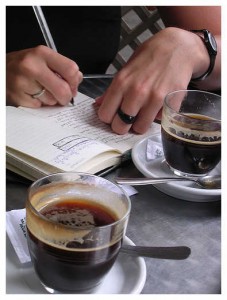 I leave the day after tomorrow to participate in a series of writing groups (in Tuscany!), organized by my friend Cary Tennis. He leads these groups (and writes along with us) using the structure outlined by Pat Schneider in Writing Alone and with Others.
I leave the day after tomorrow to participate in a series of writing groups (in Tuscany!), organized by my friend Cary Tennis. He leads these groups (and writes along with us) using the structure outlined by Pat Schneider in Writing Alone and with Others.
The format is simple…we write in groups, we write from prompts….but it’s the mind-set that makes the process so powerful:
#1. Everyone has a strong, unique voice.
#2. Everyone is born with creative genius.
#3. Writing as an art form belongs to all people, regardless of economic class or educational level.
#4. The teaching of craft can be done without damage to a writer’s original voice or artistic self-esteem.
#5. A writer is someone who writes.
From there, the writer’s task is to experiment, observe, remember, imagine, practice and be patient. We do all this with the goal to sound more and more like ourself.
***
Andiamo!
Tell the Truth
I’ve been thinking a lot lately about the Buddhist training in Wise Speech, which basically is the practice of telling the truth, in words that are kind and useful, and with the intention of bringing people together rather than driving them apart.
So for today:
Why tell the truth?
“…the commitment to truth has a significance transcending the domain of ethics and even mental purification, taking us to the domains of knowledge and being. Truthful speech provides, in the sphere of interpersonal communication, a parallel to wisdom in the sphere of private understanding. The two are respectively the outward and the inward modalities of the same commitment to what is real.
“Wisdom consists in the realization of truth, and truth is not just a verbal proposition but the nature of things as they are. To realize truth our whole being has to be brought into accord with actuality, with things as they are, which requires that in communications with others we respect things as they are by speaking the truth.
“Truthful speech establishes a correspondence between our own inner being and the real nature of phenomena, allowing wisdom to rise up and fathom their real nature.
“Thus, much more than an ethical principle, devotion to truthful speech is a matter of taking our stand on reality rather than illusion, on the truth grasped by wisdom rather than the fantasies woven by desire.”
— from The Noble Eightfold Path, by Bhikkhu Bodhi
Half-Full and Getting Fuller
 All things being equal, I tend toward an optimistic view of the world….which could be why I totally LOVE the book I finished reading over the weekend — The Better Angels of Our Nature: Why Violence Has Declined, by Steven Pinker.
All things being equal, I tend toward an optimistic view of the world….which could be why I totally LOVE the book I finished reading over the weekend — The Better Angels of Our Nature: Why Violence Has Declined, by Steven Pinker.
Or maybe it’s because this just happens to be FABULOUSLY well researched and BEAUTIFULLY written book!
Here’s a sample from near the end, which responds to the common notion that today’s technology is the big problem we are facing, and that somehow we would all be better off if we could go back to an earlier, less “modern” way of life.
“Even with all these reasons [modern medicine, transportation, literacy, etc.] why no romantic would really step into a time machine, the nostalgic have always been able to pull out one moral card: the profusion of modern violence. At least, they say, our ancestors did not have to worry about muggings, school shootings, terrorist attacks, holocausts, world wars, killing fields, napalm, gulags, and nuclear annihilation. Surely no Boeing 747, no antibiotic, no iPod is worth the suffering that modern societies and their technologies can wreak.
“And here is where unsentimental history and statistical literacy can change our view of modernity. For they show that nostalgia for a peaceable past is the biggest delusion of all. We now know that native people, whose lives are so romanticized in today’s children’s books, had rates of death from warfare that were greater than those of our world wars. The romantic visions of medieval Europe omit the exquisitely crafted instruments of torture and are innocent of the thirtyfold greater risk of murder in those times.
“The centuries for which people are nostalgic were times in which the wife of an adulterer could have her nose cut off, children as young as eight could be hanged for property crimes, a prisoner’s family could be charged for easement of irons, a witch could be sawn in half, and a sailor could be flogged to a pulp.
“The moral commonplaces of our age, such as that slavery, war and torture are wrong, would have been seen as saccharine sentimentality, and our notion of universal human rights almost incoherent. Genocide and war crimes were absent from the historical record only because no one at the time thought they were a big deal.
“From the vantage point of almost seven decades after the world wars and genocides of the first half of the 20th century, we see that they were not harbingers of worse to come, nor a new normal to which the world would grow inured, but a local high from which it would bumpily descend And the ideologies behind them were not woven into modernity but atavisms that ended up in the dustbin of history.
“The forces of modernity–reason, science, humanism, individual rights–have not, of course pushed steadily in one direction; nor will they ever bring about a utopia or end the frictions and hurts that come with being human. But on top of all the benefits that modernist has brought us in health, experience, and knowledge, we can add its role in the reduction of violence.”
What Really Makes Us Stupid
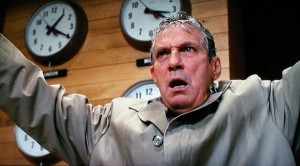 Here’s the paragraph I underlined for tonight’s KM Book Group discussion:
Here’s the paragraph I underlined for tonight’s KM Book Group discussion:
“Sometimes people think that if we have too much lovingkindness, always focusing on the good in others, it will make us stupid in some way, that we’ll no longer see the truth of what is going on or be able to take appropriate action. But it is precisely the mind not cloud by anger or hatred that allows us to see situations clearly and to chart the right course of action, even in very difficult situations.”
(from Mindfulness: A Practical Guide to Awakening, by Joseph Goldstein.)
May All Beings in All Directions…
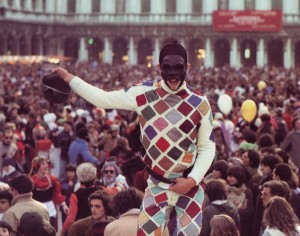 It’s my turn to bring something to read for the Sunday Morning Sangha this coming weekend, so I’ve been rummaging through my stuff and came across this passage in one of my all-time favorite dharma books, Mindfulness in Plain English, by Bhante Gunaratana:
It’s my turn to bring something to read for the Sunday Morning Sangha this coming weekend, so I’ve been rummaging through my stuff and came across this passage in one of my all-time favorite dharma books, Mindfulness in Plain English, by Bhante Gunaratana:
“Without loving friendliness, our practice of mindfulness will never successfully break through our craving and rigid sense of self. Mindfulness, in turn, is a necessary basis for developing loving friendliness. The two are always developed together…..
“At the beginning of a meditation session, say the following sentences to yourself:
“May my mind be filled with the thoughts of loving friendliness, compassion, appreciative joy, and equanimity. May I be generous. May I be gentle. May I be relaxed. May I be happy and peaceful. May I be healthy. My my heart become soft. May my words be pleasing to others. May my actions be kind….
“Develop this feeling. Be full of kindness toward yourself. Accept yourself just as you are. Make peace with your shortcomings. Embrace even your weaknesses. Be gentle and forgiving with yourself as you are at this very moment…..
“Let the power of loving friendliness saturate your entire body and mind. Relax in its warmth and radiance. Expand this feeling to your loved ones, to people you don’t know or feel neutral about–and even to your adversaries…
“May all beings in all directions, all around the universe, have good hearts. Let them be happy, let them have good fortune, let them be kind, let them have good and caring friends. May all beings everywhere be filled with the feeling of loving friendliness–abundant, exalted and measureless. May they be free from enmity, free from affliction and anxiety. May they live happily.”
***
(image by Fulvio Roiter, from Carnaval de Venise)
Travel & Desire
 I’m getting ready to leave on Saturday for back-to-back retreats at Spirit Rock, which I will post more about tomorrow. In the mean time, I’m doing laundry, making lists and stocking up on raw almonds and Jolly Rancher candies (my emergency rations for airline travel). I’m also reading passages from Invisible Cities, by Italo Calvino, which is one of my favorite pre-trip rituals. Here’s a sample:
I’m getting ready to leave on Saturday for back-to-back retreats at Spirit Rock, which I will post more about tomorrow. In the mean time, I’m doing laundry, making lists and stocking up on raw almonds and Jolly Rancher candies (my emergency rations for airline travel). I’m also reading passages from Invisible Cities, by Italo Calvino, which is one of my favorite pre-trip rituals. Here’s a sample:
Cities & Desire 2
At the end of three days, moving southward, you come upon Anastasia, a city with concentric canals watering it and kites flying over it. I should now list the wares that can profitably be bought here: agate, onyx, chrysoprase, and other varieties of chalcedony; I should praise the flesh of the golden pheasant cooked here over fires of seasoned cherry wood and sprinkled with much sweet marjoram; and tell of the women I have seen bathing in the pool of a garden and who sometimes–it is said–invite the stranger to disrobe with them and chase them in the water.
But with all this, I would not be telling you the city’s true essence; for while the description of Anastasia awakens desires one at a time only to force you to stifle them, when you are in the heart of Anastasia one morning your desires waken all at once and surround you. The city appears to you as a whole where no desire is lost and of which you are a part, and since it enjoys everything you do not enjoy, you can do nothing but inhabit this desire and be content.
Such is the power, sometimes called malignant, sometimes benign, that Anastasia, the treacherous city, possesses; if not for eight hours a day you work as a cutter of agate, onyx, chrysoprase, your labor which gives form to desire takes from desire its form, and you believe you are enjoying Anastasia wholly when you are only its slave.
As an Experiment…
 The Dharma Book KM Group I’m a part of is working its way (slowly and mindfully) through Joseph Goldstein’s Mindfulness: A Practical Guide to Awakening. We met last night and got to talking about a practice Joseph suggests in the section on Mindfulness of Mind:
The Dharma Book KM Group I’m a part of is working its way (slowly and mindfully) through Joseph Goldstein’s Mindfulness: A Practical Guide to Awakening. We met last night and got to talking about a practice Joseph suggests in the section on Mindfulness of Mind:
“As an experiment, pay attention to the next time you experience a strong wanting in the mind. Stay as mindful as possible of how it manifests in the mind and body. And then notice as the wanting disappears, either in a moment or gradually over time. Instead of rushing back to the breath or some other object of meditation, pay attention to the mind free of wanting, experiencing the coolness and peace of that state.”
Since we’re more likely to pay attention to the times when our minds are NOT free of wanting, the group decided that we will try Joseph’s suggestion — at least occasionally — over the next couple of weeks. It sure would be nice, we all agreed, to be more aware when we actually ARE experiencing a little coolness and peace.
Try it with us!
Let the Concert Begin
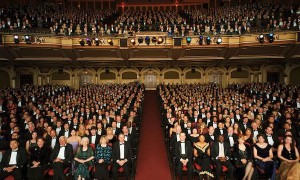 Today’s post comes from an early book of collected essays (published in 1974) titled: What is Meditation, edited by John White. Of course mediation has been taught for more than 2600 years, so when I say “early,” I mean early for us Westerners.
Today’s post comes from an early book of collected essays (published in 1974) titled: What is Meditation, edited by John White. Of course mediation has been taught for more than 2600 years, so when I say “early,” I mean early for us Westerners.
Here’s a sample from The Art of Meditation, written by one of these “early” practitioners, Alan Watts.
“We are…out of touch with reality. We confuse the world as talked about, described, and measured with the world as it actually is. We are sick with a fascination for the useful tools of names and numbers, of symbols, signs, conceptions, and ideas. Meditation is therefore the art of suspending verbal and symbolic thinking for a time, somewhat as a courteous audience will stop talking when a concert is about to begin.
“Simply sit down, close your eyes, and listen to all sounds that may be going on–without trying to name or identify them. Listen as you would listen to music. If you find that verbal thinking will not drop away, don’t attempt to stop it by force of willpower. Just keep your tongue relaxed, floating easily in the lower jaw, and listen to your thoughts as if they were birds chattering outside–mere noise in the skull–and they will eventually subside of themselves, as a turbulent and muddy pool will become calm and clear if left alone.”
***
(Thanks, Thomas, for sharing that gem.)
What Meditation is Not
 from Mindfulness in Plain English, by Bhante Gunaratana:
from Mindfulness in Plain English, by Bhante Gunaratana:
“Misconception #1: Meditation is Just a Relaxation Technique
“Relaxation is a key component of meditation, but vipassana-style (mindfulness) meditation aims at a much loftier goal…All mediation procedures stress concentration of the mind, bringing the mind to rest on one item or one area of thought. Do it strongly and thoroughly enough, and you achieve a deep and blissful relaxation….
“Vipassana seeks another goal: awareness. Concentration and relaxation are considered necessary concomitants to awareness. They are required precursors, handy tools, and beneficial byproducts. But they are not the goal. The goal is insight. Vipassana mediation is a profound religious practice aimed at nothing less than the purification and transformation of your everyday life.”
***
One can quibble with the use of “religious” in that last sentence (see yesterday’s post), but there’s no disputing the profound nature of this practice.
On Not Believing
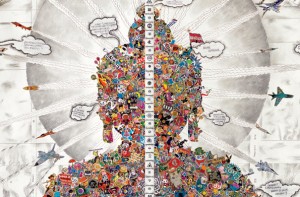 I’ve been going through my library this morning, looking for something to read/discuss at the Sunday Morning Sangha (if called upon) and I came across this oldie-but-goodie by Stephen Batchelor: Buddhism Without Beliefs.
I’ve been going through my library this morning, looking for something to read/discuss at the Sunday Morning Sangha (if called upon) and I came across this oldie-but-goodie by Stephen Batchelor: Buddhism Without Beliefs.
“First and foremost the Buddha taught a method (‘dharma practice‘) rather than another ‘-ism.’ The dharma is not something to believe in but something to do. The Buddha did not reveal an esoteric set of facts about reality, which we can choose to believe in or not. He challenged people to understand the nature of anguish, let go of its origins, realize its cessation, and bring into being a way of life…
“An agnostic Buddhism would not regard the dharma as a source of ‘answers’ to questions of where we came from, where we are going, what happens after death. He would seek such knowledge in the appropriate domains: astrophysics, evolutionary biology, neuroscience, etc. An agnostic Buddhist is not a ‘believer’ with claims to reveal information about supernatural or paranormal phenomena, and in this sense is not ‘religious.’…
“An agnostic Buddhist eschews atheism as much as theism, and is as reluctant to regard the universe as devoid of meaning as endowed with meaning. For to deny either God or meaning is simply the antithesis of affirming them. Yet such an agnostic stance is not based on disinterest. It is founded on a passionate recognition that I do not know. It confronts the enormity of having been born instead of reaching for the consolation of a belief. It strips away, layer by layer, the views that conceal the mystery of being here…
“Such deep agnosticism is an attitude toward life refined thorough ongoing mindful awareness. It may lead to the realization that ultimately there is neither something nor nothing at the core of ourselves that we can put a finger on. Or it may be focused in an intensive perplexity that vibrates through the body and leaves the mind that seeks certainty nowhere to rest.”
***
I don’t think there’s anything here that would be controversial. But I do think it could get a conversation going. Especially since Batchelor went on to write: Confessions of a Buddhist Atheist.

